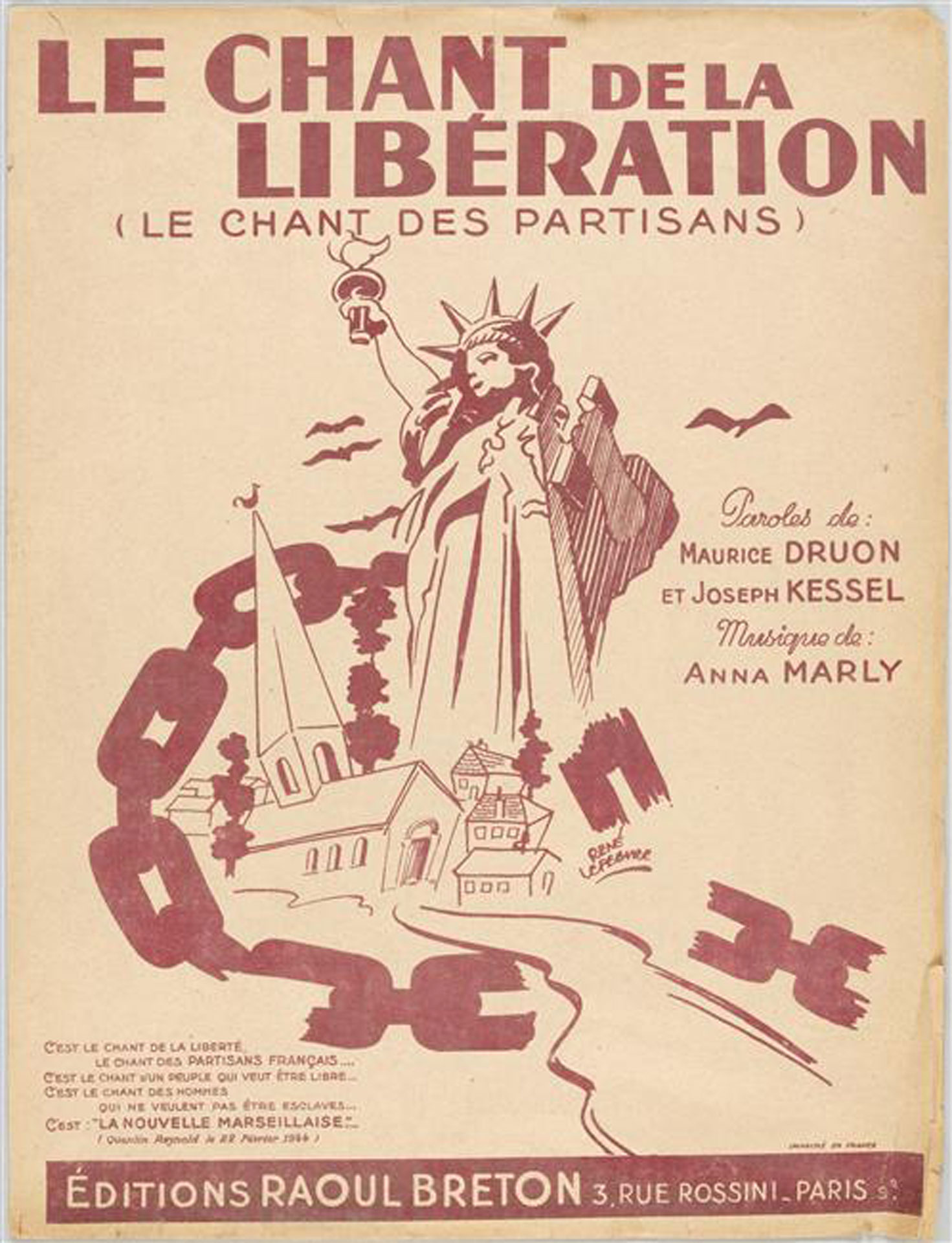“A friend will come out of the shadows”: French partisan songs
“Friend, do you hear the crows’ dark flight over our plains?…”
“Le Chant des Partisans” (“Song of the Partisans” or “Liberation song”) is the anthem of the French Resistance, still played today during official commemorations. The author is Anna Marly (1917-2006), a French artist of Russian origin who fled to London after the German occupation of France in 1940. Marly composed and wrote the song at the end of 1941, in Russian, a mobilizing song entitled “Guerilla song” or “Partisan March”, in response to the advance of the Nazi army in her country of origin. When Emmanuel d’Astier, one of the French resistance leaders, heard her perform the song, he immediately said: “This is the song we need for France.” Joseph Kessel, himself of Russian origin, wrote a French version with his nephew and writer Maurice Druon, and “Le Chant des Partisans” was born. Germaine Sablon, then Joseph Kessel’s companion, recorded a first version in spring 1943 ; the melody became the musical theme of a BBC-broadcast of the Free France, and the song was also printed in underground newspapers in occupied France. It became particularly popular after the liberation, known as the “Marseillaise of the Resistance“.
Anna Marly composed another song during the war, “La Complainte du Partisan” (The Complaint of the Partisan), on lyrics written by Emmanuel d’Astier. Both songs are sometimes confused, as they are both dedicated to the life-or-death fight of the Partisans against the German occupier, but in different ways. “Le chant des partisans” has the rhythm of a military march, it is a call to arms, with the perspective of the final victory to come, whatever the losses: “Friend, if you fall, a friend will come out of the shadows in your place.” “La Complainte du Partisan” also evokes the final victory. But it is a more introspective song, a melancholic ballad, a tribute to the sufferings and sacrifices of the resisters who are not fighting out of heroism but because it is their duty, and when “Freedom will return / We will be forgotten / We will return to the shadows”.
“La complainte du partisan” became later internationally known under the title “The Partisan”, in particular in the version sung by Leonhard Cohen. The English version follows the French original text, with one crucial difference: in the last strophe, the resistor is not forgotten, on the contrary: “Freedom soon will come / Then we’ll come from the shadows.”
Yvan Gastaut & Nicolas Moll


